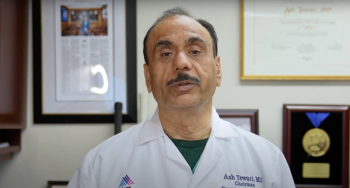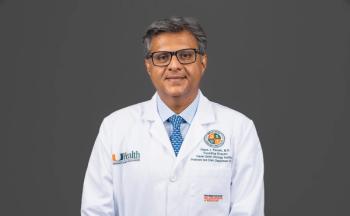
TikTok Videos About Urogynecologic Conditions: Yale Study Shows Misinformation Gets More Engagement

“It’s important to realize that a single TikTok post can reach tens of thousands of people and potentially influence health care decisions," says Leslie Rickey, MD, MPH.
Physicians may still be
Regarding some of the most common conditions that affect women, Yale researchers wanted to see just how accurate that information may be – specifically on the platform TikTok.
“People often imagine TikTok and think of the newer generations, that it’s a thing for the ‘kids,’” says Alicia Stephan, BS, the study's first author and a Yale School of Medicine student. “But adults in general and women of childbearing years, specifically, are some of the fastest growing audiences for this platform.”
COMMON CONDITIONS
The senior study author, Yale School of Medicine Associate Professor Leslie Rickey, MD, MPH, who is also a Yale Medicine urogynecologist, points out that one in four women is affected by female pelvic floor [FPF] conditions [i.e.,
The study that Stephan, Rickey, and their research team undertook focused on assessing the quality of FPF TikTok videos with the highest number of likes, comments, and/or shares. Seventy-four videos were carefully examined by two reviewers specializing in FPF disorders, then rated on a 5-point scale to capture level of misinformation. A 16-question validated instrument called the DISCERN tool was also applied, designed to judge the quality of consumer health information.
VIRAL IMPACT
“It’s important to realize that a single TikTok post can reach tens of thousands of people and potentially influence health care decisions. Even if the misinformation isn’t harmful, it may take people down the wrong path,” warns Rickey.
“There’s a lot of engaging material based on medical topics; very little of it is produced by health care professionals,” says Stephan.
IF YOU CAN’T BEAT ‘EM, JOIN ‘EM
Both Stephan and Rickey make it clear they are not bashing social media but instead see room for improvement.
“Platforms like TikTok provide an opportunity to inform and empower women on these issues. Physician groups may benefit from non-traditional partnerships with social media marketing entities or established content creators so they can more effectively reach and educate people on pelvic floor disorders,” says Rickey.
“How many hours a day do you spend on your laptop or social media versus how many hours a month or a year do you spend talking to a doctor?” Stephan rhetorically asks. “At a certain point, social media exposure is really dominating.”
And Yale researchers hope to ensure more of that exposure is raising public awareness and providing accurate information to those looking for answers.
Newsletter
Stay current with the latest urology news and practice-changing insights — sign up now for the essential updates every urologist needs.






